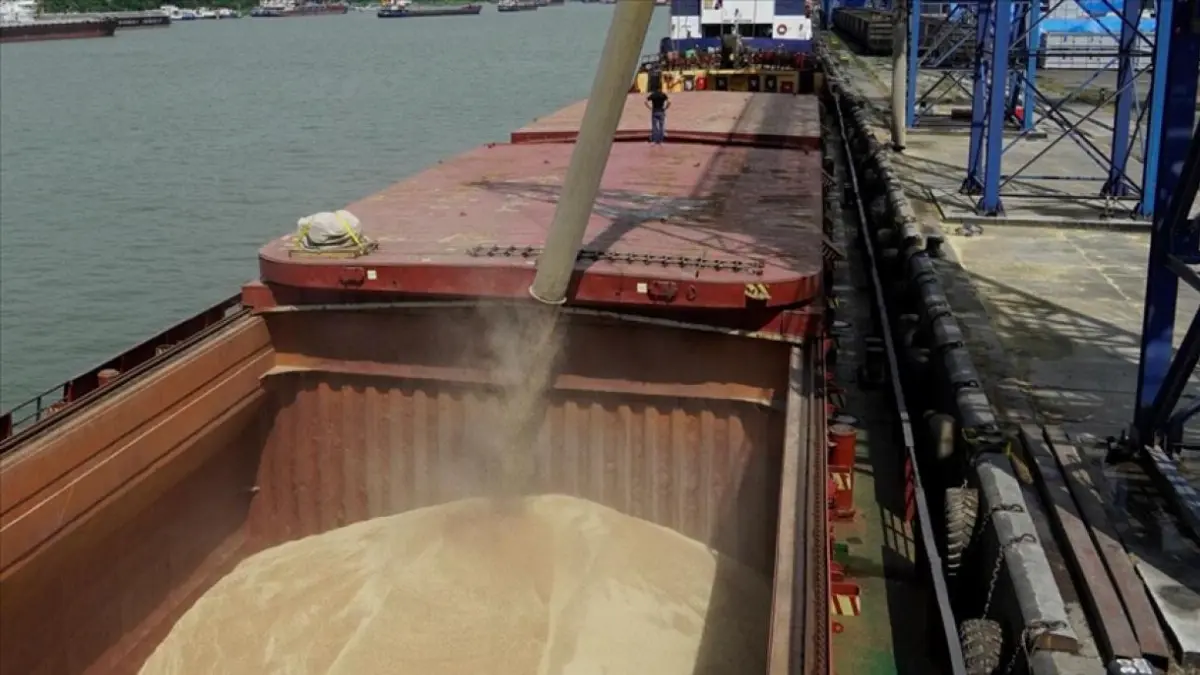
Grain deal, Putin attacks, Kiev responds
Russian missile raid in the Black Sea destroys 60,000 tons of grain. Ukraine: terrorism against the world

He has a good point when he says the czar of all Russias, Vladimir Putin, that "Western countries did everything they could to derail" the grain deal. He has a nice saying when he accuses the West, as he did according to Tass reports, of "enriching themselves with the grain deal". He has a nice saying when he boasts, as Tass also reports, that he has shown "exceptional patience" by regularly extending the understanding while accusing the West of "also preventing free fertilizer deliveries by Russia to poorer countries".
So many words being disregarded by actions. On the nights of july 18 and 19, in fact, Russia launched attacks on Ukrainian port infrastructure involved in the Black Sea Grain initiative. According to Ukraine's ministry of Agricultural policy and food, 60,000 tons of grain were destroyed in the port of Chornomorsk, grain that was to be loaded onto a large-ton ship and sent through the grain corridor 60 days ago. The Ukrainian Air Force said Russia sent 19 cruise missiles and 19 kamikaze drones in attacks on Odessa and Mykolaiv.
"The grain infrastructure of traders and international and Ukrainian carriers, such as Kernel and Viterra are the ones who suffered the most -explained Ukrainian Agriculture minister Mykola Solskyi-. This is a terrorist act not against Ukraine, but against the whole world. World food security is once again in danger. Humanity is being held hostage by a terrorist country that is blackmailing the world with hunger". The minister added that the price of wheat will rise, resulting in a considerable increase in prices for foods such as flour, grains and meat.
Adding further fuel to the fire, Russian Defense minister Sergei Kužugetovič Šojgu, for his part, intervened: he warned that ships bound for Ukrainian Black Sea ports could be considered "potential carriers of military goods", starting July 20. "Consequently -he stressed- the countries of such ships will be considered involved in the Ukrainian conflict on the side of the Kiev regime. In addition, a number of marine areas in the northwestern and southeastern part of the international waters of the Black Sea have been declared temporarily dangerous for navigation".
António Guterres, secretary-general of the United Nations, also spoke on the issue, saying that the Russian Federation's decision would "affect people in distress everywhere".
On the evolving situation, especially from a macroeconomic perspective, Kumar Amit, senior specialist at The Smart Cube, a global provider of industry-specific research and analysis solutions, spoke. "The suspension of the Black Sea Grain Initiative -the analyst explained- may not destabilize global food inflation in the short term, as Ukrainian grain shipments declined significantly from March to June, down 48.6% during this period: ship inspection rates experienced a substantial drop during the period. Amit added that the termination of the wheat agreement, coupled with concerns about possible drought in Europe and the onset of the El Niño weather phenomenon in the second half of 2023, "may lead to a supply shortage, putting upward pressure on prices".
"A drop in exports -the analyst continues- may lead to higher stocks in Ukraine and could force farmers to reduce planting in the 2023-24 season. Russia could increase the tax on grain exports to finance its military campaign in Ukraine, and finally, fertilizer shortages could intensify. This is because Russia, along with Belarus, is one of the world's largest sources of mineral fertilizer. Both countries account for about 14% of world fertilizer production and exports".
EFA News - European Food Agency